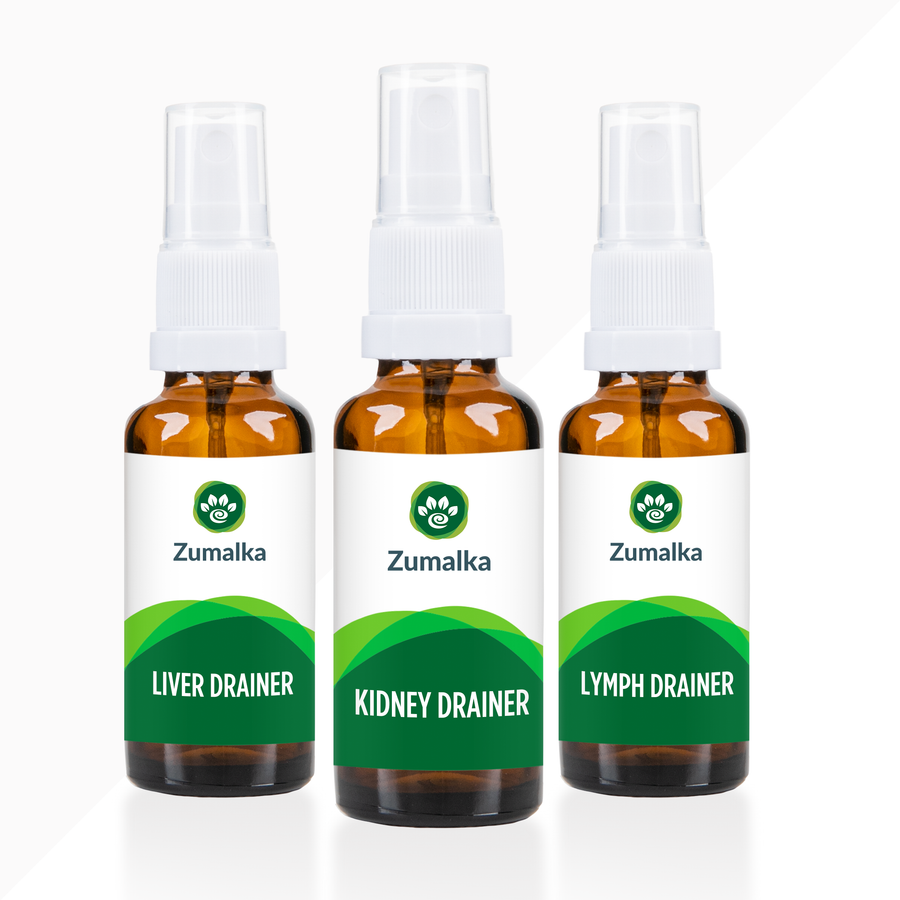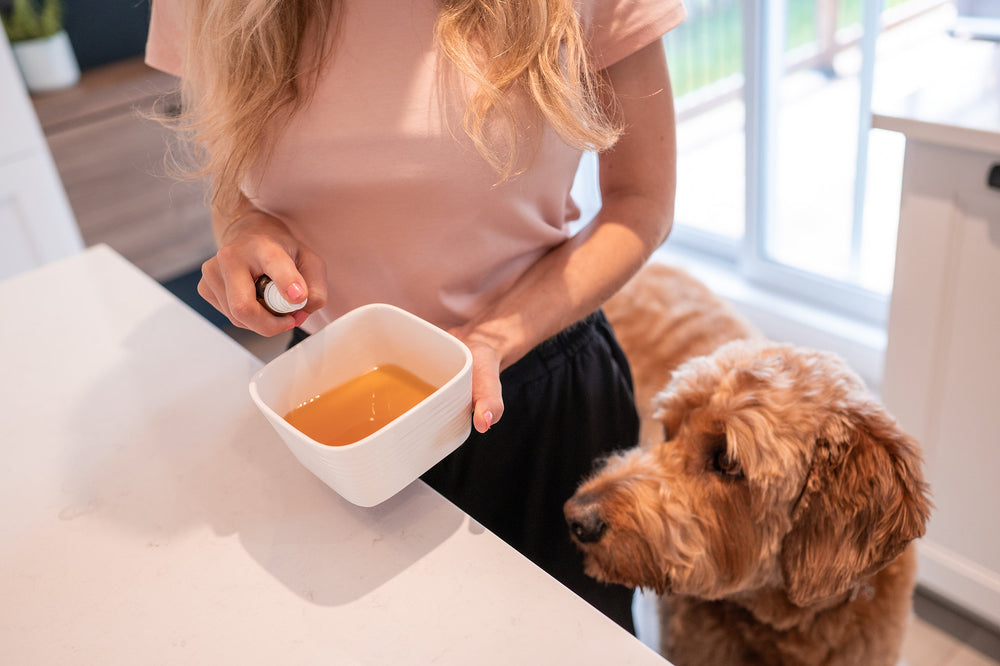Say Goodbye to Dog Bad Breath Naturally with These 10 Tips
Cuddling and bonding can be difficult if your dog's breath smells awful. Stinky breath in dogs shouldn't be ignored. While this problem can result from poor oral hygiene, it may also indicate serious health issues, such as dental disease or gastrointestinal problems.
Bad breath can be more than just problems with your dog's teeth or gum disease.

Although it may sound alarming, stinky dog breath isn't just a sign of oral health issues or periodontal disease. It can also indicate serious conditions such as kidney or liver disease. Therefore, it's crucial not to disregard your dog's bad breath.
If you're concerned about your dog's bad breath, you're in the right place. This blog post will guide you through everything you need to know. Discover the possible causes and learn natural ways to tackle this smelly issue.
Does Bad Dog Breath Automatically Mean Health Issues Exist?
No, bad breath in dogs doesn’t necessarily mean your pet is suffering from kidney disease or other serious health issues. It's important to first check for obvious culprits like loose or damaged teeth, or tooth decay. These common dental problems are often the cause of bad breath in dogs.
However, if your dog's bad breath persists despite routine oral hygiene care, such as brushing and using dental chews, it might indicate a more serious health problem.
Possible Causes of Your Dog's Bad Breath
Technically referred to as halitosis, bad breath in dogs doesn’t just happen overnight. Here are some common causes for your canine companion's unpleasant breath:
Debris getting stuck inside your dog's mouth
One of the most common factors that can trigger canine bad breath is things getting stuck in its mouth. Bits of food, dirt, garbage, cloth, and other debris can increase bad bacteria levels, causing your dog's breath to smell.
Diseased teeth and gums
Problems with your dog's teeth and gums can lead to bad breath, indicating harmful bacteria, excessive tartar, and plaque. Abscesses may also contribute to the issue. Lack of regular tooth brushing and cleaning can trigger these oral health problems.
Diabetes
Did you know that diabetes is an underlying health condition that can cause foul breath in dogs? This is due to the uncontrolled production of ketones, which gives your dog's breath a distinct, off smell. Additionally, surging blood sugar levels can also trigger problems with your pet's oral health if left unchecked.
Liver disease
Another underlying health issue to watch out for is liver disease. This is due to the buildup of toxins that the liver is supposed to eliminate. Your dog's breath may smell like rotten meat in this situation. Additionally, this odor may also be a sign of oral tumors or cancer.
Kidney disease
Dog breath that smells heavily of urine or ammonia may be a sign of kidney disease. Problems with your dog's kidneys can also lead to a condition called uremia, which can cause ulcers in and around the mouth.
Sudden changes or "fixations" in your dog's diet
Another possible reason for your dog's bad breath is a sudden change in diet. Shifting from one type of dog food to another may encourage the accumulation of bacteria that cause bad breath. Similarly, most dogs often "sample" things they shouldn't eat, like feces. Bad breath may result if your dog has recently eaten poop.
How to Get Rid of Bad Dog Breath Fast Naturally
While many dog owners immediately resort to conventional oral health products to address bad breath, natural options are also available. In this part of our discussion, we will explore these natural alternatives.
#1. Apple cider vinegar
Research indicates that the acetic acid in apple cider vinegar can inhibit the growth of bacteria and fungi responsible for bad breath.
To help combat bad breath in dogs, add a quarter teaspoon of apple cider vinegar to your dog's water bowl every three days. Do not feed it directly to your dog, as the high acidity can be unpleasant. Alternatively, you can use lemon juice for this application.
#2. Aloe vera
A study shows that aloe vera exhibits significant antibacterial activity against Streptococcus mutans and Staphylococcus aureus, bacteria known to cause bad breath.
To use aloe vera, peel the skin off mature leaves and harvest the fleshy gel. Slice the gel into bite-sized pieces and mix them with your dog’s meal. Alternatively, combine the aloe vera gel with your dog’s water for a more convenient approach.
#3. Carrots
Did you know that carrots contain anti-inflammatory compounds like falcarindiol and falcarinol that help improve your dog's overall oral health? Besides keeping your dog's breath fresh, these compounds also promote better gastrointestinal function.
To use carrots to maintain fresh breath, chop them into small pieces and mix them directly with your pet's food. For a smoother consistency, you can also grate them. Typically, a medium-sized carrot per day is sufficient.
#4. Celery
Research reveals that celery is abundant in antibacterial compounds that target bacteria such as Staphylococcus aureus and Streptococcus mutans, which are known to cause oral infections and bad breath.
To improve your dog's oral health with celery, you can add it to their diet. Offer small pieces of celery as a snack or mix it into their regular meals. A few pieces given a couple of times a week can help reduce bad breath.
#5. Cinnamon
A study reports that natural oils found in cinnamon help eliminate bacteria that can accumulate in the biofilm of a dog's tongue. Excessive buildup of these bacteria can make your dog's breath smell unpleasant.
To use cinnamon to keep your pet's breath fresh, add a couple of pinches of ground cinnamon to its meals and mix it thoroughly. Be cautious not to get any cinnamon near your dog's eyes or nose, as it can irritate them.
#6. Coconut oil
Researchers indicate that the lauric acid in coconut oil can help control the number of Streptococcus mutans, a bacteria responsible for bad breath. The potency of this natural alternative is even comparable to some conventional mouthwashes like chlorhexidine.
To use coconut oil to eliminate your dog's bad breath, gently apply a small amount onto your pet's teeth, gums, tongue, and the inside of their cheeks. Repeat this process at least twice a day until the unpleasant odor disappears. Additionally, ensure you only use food-grade coconut oil for this application.
#7. Oranges
A study shows that oranges can benefit your pet’s health by improving gastrointestinal function and preventing obesity. The metabolic benefits of oranges can also reduce the risk of dental disease and improve your dog's breath.
To help freshen your dog's breath, add a couple of orange segments to their daily meal. Be sure to remove the seeds and stringy membrane first.
#8. Parsley
Parsley contains phenolic compounds that help reduce the amount of bad breath-causing disulfides in a dog's mouth. Additionally, parsley is known to have detoxifying benefits when consumed on a regular basis.
To use parsley to combat your dog's stinky breath, you can give this leafy herb to your furry friend as a post-meal treat. Alternatively, you can sprinkle a small amount over your dog’s food.
However, it is crucial to remember to use only curly parsley for this purpose, as its flat-leaf cousin can be toxic to your beloved pet.
#9. Spirulina
Did you know that spirulina can help enhance your dog’s gut health? A healthier gut microbiota not only contributes to overall well-being but also helps keep bad breath and emerging oral health issues at bay.
To harness these benefits, you can easily add spirulina to your dog's diet. Simply sprinkle a pinch of spirulina powder into your dog’s food and mix it thoroughly. Spirulina has a distinct fishy taste that dogs might find unappealing when eaten directly, so thorough mixing is crucial.
#10. Yogurt
The probiotics in yogurt help eliminate sulfur compounds in the mouth and saliva, which can cause bad breath. Additionally, yogurt also helps promote oral health by strengthening teeth.
To use yogurt to combat stinky breath in dogs, mix a tablespoon directly into their meals. It is crucial to use only plain Greek yogurt, as other varieties may contain too much sugar or excess milk.
A Natural Product Designed to Deal With Bad Breath in Dogs

Are you exploring natural alternatives for your dog's bad breath? Have you considered Zumalka's BAD BREATH KIT? Our kit includes the KIDNEY DRAINER, LIVER DRAINER, and LYMPH DRAINER homeopathic products, which work together to improve your dog's digestion and eliminate toxins for fresher breath.
While bad breath often stems from dental problems like tartar buildup or gingivitis, it can also indicate an underlying digestive issue if dental causes are ruled out. Cleansing your dog's organs is essential for promoting better digestion and reducing bad breath.
I hope this blog post has provided valuable insights into helping your canine companion eliminate bad breath naturally. Please share your experiences, questions, and additional insights in the comments section below. We here at Zumalka look forward to hearing from you!







Leave a comment